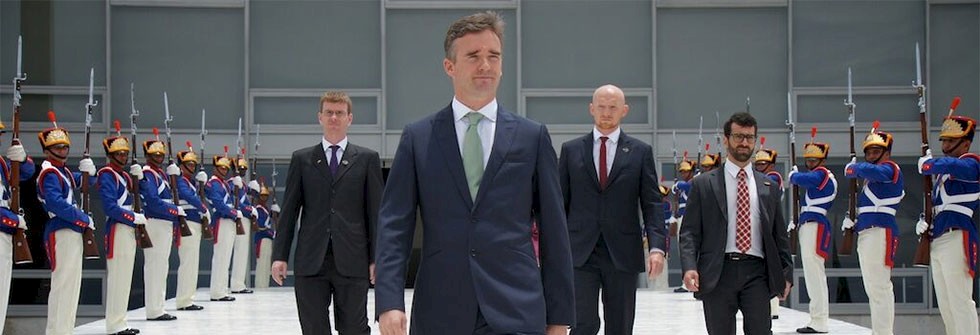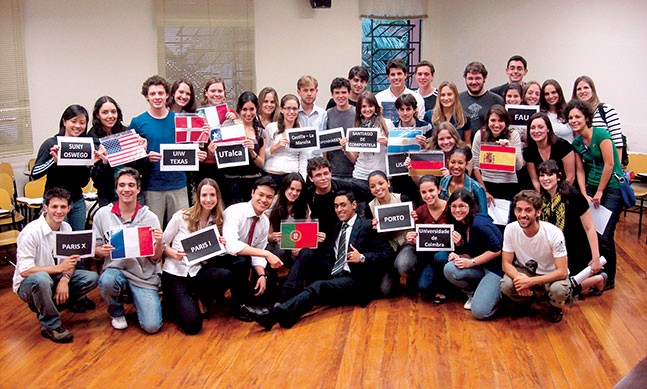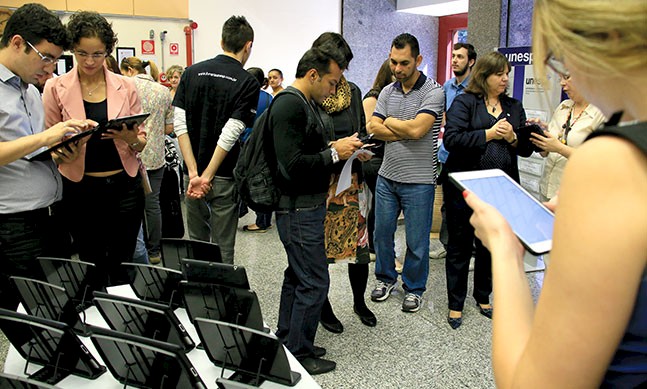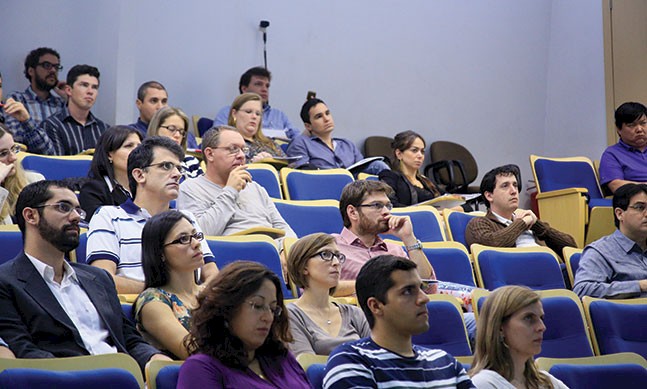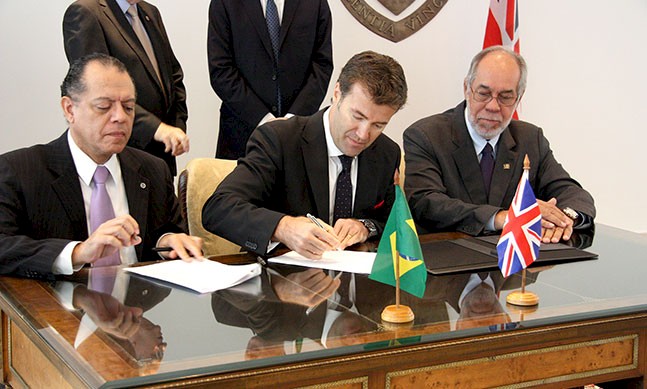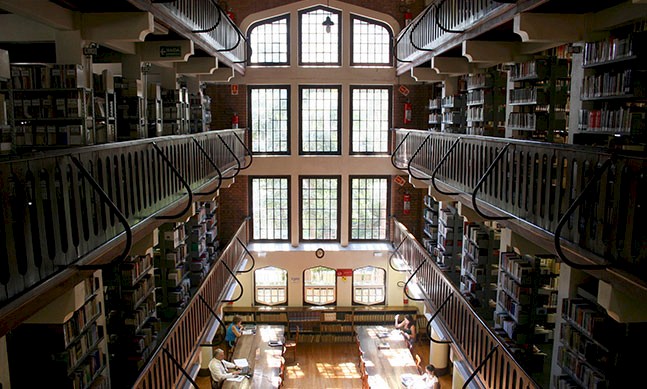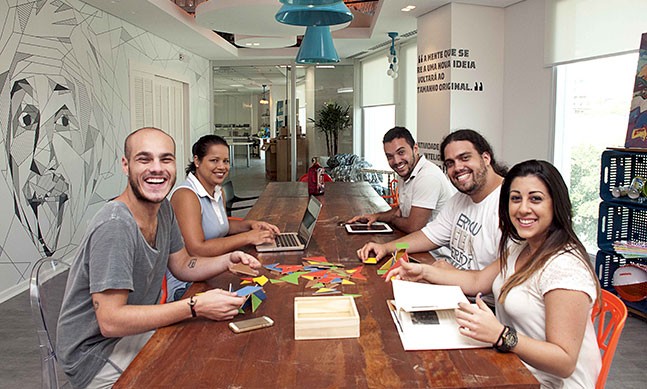Alex Ellis has been the UK’s ambassador to Brazil since July 2013, following two years as director for strategy at the Foreign Office and British ambassador to Portugal. He spoke to The Report Company about the current intersections of interest between the UK and Brazil.
The Report Company: How would you appraise the current status of the relationship between the UK and Brazil?
Alex Ellis: The UK was the dominant trade and investment partner of Brazil up until the 1920s and then we turned our backs on each other for all sorts of reasons, but there has been a big push in the last few years to bring that back.
It’s a crude metric but in the last four years the foreign secretary has been twice to Brazil; the chancellor of the exchequer came in April to talk about infrastructure and education; we’ve had the prime minister, the deputy prime minister twice and Prince Harry twice in three years. That is just the tip of the iceberg: there has also been a big increase in the flows of Brazilian tourists to the UK which has doubled in about five years and a there has been an enormous increase in students. It is very busy. In 2013, for example, there were around 13 ministerial visits while between 2007 and 2010 we had ten so the change is there to see.
TRC: Where do you see opportunities for collaboration between the two countries?
AE: Brazil has extraordinary opportunities. It also has some big bottlenecks, and I think the UK is a country which can help unblock them, particularly around technology and infrastructure. We see that already in oil and gas; there are a lot of British firms operating in oil and gas in Brazil. Some of them are quite small firms which use very high technology for activities such as maintaining the life of a well or monitoring the performance of a floating platform. It´s very advanced.
The next big challenge is infrastructure. Brazil has huge infrastructure opportunities. The competition for infrastructure capital is very fierce and Brazil wants that capital. They want to attract more British firms to come here. At the same time, British firms have opportunities all over the world, from the Middle East to Asia, the United States and the UK itself, so getting British firms to Brazil depends on how well planned and well-structured the contracts are. UK firms are good at helping with that.
The UK has certain sectors, including technology, which Brazilian firms are very interested in. I don’t think they know yet enough about the technology which is on offer in the UK and the innovation which is on offer in the UK, but we do a lot of work with Brazil on innovation.
There are certain areas which we particularly focus on. Huge infrastructure is one, education is clearly another, oil and gas we do a lot on, and the marine bits of oil and gas. We also do a lot in sport.
“Brazil has extraordinary opportunities. It also has some big bottlenecks, and I think the UK is a country which can help unblock them, particularly around technology and infrastructure.”Tweet This
TRC: What is the mood of investors toward Brazil?
AE: I think that there are fashions to these things. There is no doubt that Brazil was in fashion with investors, and is now a bit less in fashion, but as always nothing is ever as good as it appears or ever as bad. You have to separate the stock and the flow. The flow is going to some other countries but the stock of Brazil is enormous and therefore the opportunities are huge and the British firms who stick at it do very well here.
TRC: What tips would you give to investors?
AE: My first tip is that if you plan on coming for just a year, don’t bother. Things take time in Brazil. That said, sometimes things can happen very quickly in Brazil and we saw that just before the World Cup with the speed which things happened but you can’t do the quick bit without the slow bit. Things happen but they happen at a rhythm and you have to be ready for both the slow and the quick parts.
Very often, success comes through joint ventures or partnering with a local company and finding the right partner is hard. A lot of our work is trying to introduce companies to the right partners.
My tip would be to take the time to find the right partner and be realistic about what Brazil is and isn’t. The perception of Brazil depends on what you’re comparing it to. I saw one of the CEOs of one of the UK’s biggest companies late last year and asked him how Brazil compares to the other BRICs and he said that it is the easiest of the BRICs.
TRC: What collaboration do you see in the education sector?
AE: Under the government’s new Newton Fund, there are post-docs doing joint research with the UK and Brazil. There is a statistic that if a Brazilian researcher partners with the UK, it amplifies their global impact more than if they joint publish with any other nationality in the world. There is an enormous amplification effect for a Brazilian who joint publishes with a British researcher.
There are also other areas, such as the technology centre which BG is building in Rio. That is global research at a very high level, looking at very specific oil and gas issues. Then at the other end of the spectrum we had 10 technical institute Rectors from SENAI, SENAC and CONIF going to the UK for a principal shadowing programme, and 50 hospitality students going to UK colleges for 3 months as part of a pilot project with the ministry of tourism. Then there is everything in between.
“There is a statistic that if a Brazilian researcher partners with the UK, it amplifies their global impact more than if they joint publish with any other nationality in the world. There is an enormous amplification effect for a Brazilian who joint publishes with a British researcher.”Tweet This
TRC: What has been the feedback from UK universities who are partnering with Brazil through the Science without Borders programme?
AE: The feedback is good and they want more. One encouraging piece of data I saw was that 50 percent of the Brazilian students go to Russell Group universities, so it seems to be working pretty well. There are British universities establishing offices here and they really like it. These universities see great potential for growth.
TRC: What further links do you foresee between the UK and Brazil?
AE: There is a very strong sense from Brazilian companies that the UK has things to offer that are of use. They are very interested in the way we go about planning infrastructure and in some of the technology we use for infrastructure. Let’s take the example of Crossrail, which is an enormous infrastructure project being done in a busy city. The Brazilians are very interested in the IT use and technology use in order to be able to do a project like this because in due course this is going to be happening in Brazil.
TRC: Other than Science without Borders, what education projects are the two countries collaborating on?
AE: There is the Newton Fund which was launched by the chancellor when he was here in April 2014. One of the most encouraging things about that was no sooner than we launched it, we immediately had financing offered by CONFAP [the Brazilian Council of State Funding Agencies]. We have another programme which is a future leaders programme. We had the first ever Brazilian going to do a Clore Fellowship in the UK; the Clore Foundation is a very big artistic foundation and their fellowships are very good.
“There is a very strong sense from Brazilian companies that the UK has things to offer that are of use.”Tweet This


